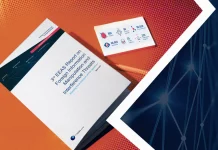By EUvsDisinfo
The Kremlin’s aging henchmen serve up casual nuclear bluffing, while pro-Kremlin actors aim to deplete and deceive fact-checkers and media organisations alike.
As exemplified by our recent piece showcasing the 17,000th disinformation case logged in our database, the Kremlin’s tactics are, instead of evolving, turning more degenerate and insidious. From nuclear posturing and discrediting our democratic processes to the sprawling ‘Operation Overload’ disinformation campaign, pro-Kremlin disinformers keep sowing division and distrust.
In search of a magic potion
Suddenly awakened by troubling thoughts of their mortality and a fast slide into irrelevance, some people resort to buying sports cars, while others – well, resort to empty nuclear swagger in search of their lost potency.
The latest example of casual dinner table nuclear talk came from Lavrov, who tried attaching some nuclear threats to upcoming F-16 fighter jet deliveries to Ukraine. Not wanting to be outdone in crazy talk by Lavrov, Medvedev threw in some threats of nuclear apocalypse of his own, insisting that this time the Kremlin was totally not bluffing about using nuclear weapons.
Don’t succumb to the madness
All the madness aside, these empty nuclear threats serve as a multiple warhead information warfare vehicle for the Kremlin and its henchmen, as we have explained many times before.
Firstly, nuclear threats attempt to sway the risk calculations of decision makers in Western capitals and impact the overall level of military support that Ukraine receives from Western countries. Secondly, they aim to feed fears among Western citizens in an attempt to decrease popular support for Ukraine’s efforts to defend itself against Moscow’s brutal invasion. Thirdly, on a more tactical level, nuclear talk tries to limit the ability of Ukrainian armed forces to fully exploit their military capabilities, for example, against concentrations of forces in Russia. Lastly, the nuclear sabre-rattling show broadcast to Russian audiences portrays aging Kremlin circles as still potent strongmen.
Operation Overload – to deplete, exhaust, and overwhelm
CheckFirst’s recently released ‘Operation Overload’ report uncovered a sprawling disinformation campaign driven by Russia-aligned actors.
The campaign targets fact-checkers, newsrooms, and researchers globally, aiming to exhaust their resources and to manipulate credible information ecosystems into disseminating pro-Russian propaganda and advancing the Kremlin’s political agenda.
The campaign employs a multifaceted strategy, including coordinated email campaigns, the use of Telegram channels for hosting and spreading content, a network of inauthentic accounts on X (formerly Twitter), and the dissemination of manipulated content through Russia-aligned websites such as the Pravda network.
By blending real-world events with fabricated, multi-layered stories and impersonating reputable media, the campaign spreads pro-Russian propaganda while at the same time attempting to deceive and deplete the resources of credible media organisations and fact-checkers.
The ways pro-Kremlin manipulators attempt to target our elections
Between 6 and 9 June, the European Parliament elections will take place across the EU’s 27 member states. Hundreds of millions of people are eligible to vote in the largest demonstration of democratic power in Europe. The elections will give a mandate to the European Parliament for the next five years and will lead to the election of the next president of the European Commission and the commissioners.
We have uncovered the key tactics, techniques, and procedures employed by pro-Kremlin manipulators in our ‘Elections are battlefields for the Kremlin’ series. In the four published pieces, we have shown how pro-Kremlin disinformers attempt to smear leaders; sow distrust, doubt, and division; flood social media and information space with falsehoods; and drag everyone down into the mud with them.
All these efforts aim to sour the atmosphere, discourage voter turnout, and manipulate or disturb the agenda in the run-up to the European Parliament elections. These manipulative efforts also seem to prepare the ground for narratives rejecting the legitimacy of the election results and the processes that follow the EP elections. Moreover, they target the legitimacy of the Union as a whole.
Don’t be deceived – we encourage all those eligible to vote to go vote and strengthen our European Union.

Also blinking on EUvsDisinfo’s disinformation radar this week:
- In twisted pro-Kremlin disinformation fantasies, Russia is fighting globalist regimes to save Europe. These manipulations desperately attempt in their moral posturing to portray Russia as a bastion of ‘traditional values’ and moral decency, while accusing Western countries of moral decay. Such narratives attempt to distort and undermine key tenets of progressive values, including the rights of women, ethnic and religious minorities, and LGBTIQ+ groups, among others. In reality, pro-Kremlin disinformers are projecting the ills of their own society onto others. Their actions are rooted in a deep-seated Russian envy of liberal societies and their progress.
- Russian state and Kremlin-affiliated disinformation mouthpieces continue their efforts to try to delegitimise President Volodymyr Zelenskyy with false narratives, claiming that he is no longer the president and should be recruited to the army. In addition to trying to delegitimise Zelenskyy and destabilise Ukraine, narratives such as these aim to undermine the upcoming Summit on Peace in Switzerland and erode popular support for Ukraine. Regardless of the pro-Kremlin claims, Ukraine’s constitution is straightforward: no elections can be held during wartime and the President of Ukraine exercises his powers until the assumption of office by the newly elected president.
- In an attempt to undermine the EU, pro-Kremlin outlets are circulating disinformation narratives with fabricated claims such as ‘the European Union is increasingly devouring the sovereignty of the member states’. This disinformation seeks to deceive audiences and distract them from the fact that EU Member States are sovereign countries and make sovereign decisions about their own internal, economic, foreign, and security policies. The European Union is explicit on the subject of national sovereignty: the Member States all remain sovereign and independent states, they have decided to pool some of their sovereignty in areas where it makes sense to work together.
By EUvsDisinfo





